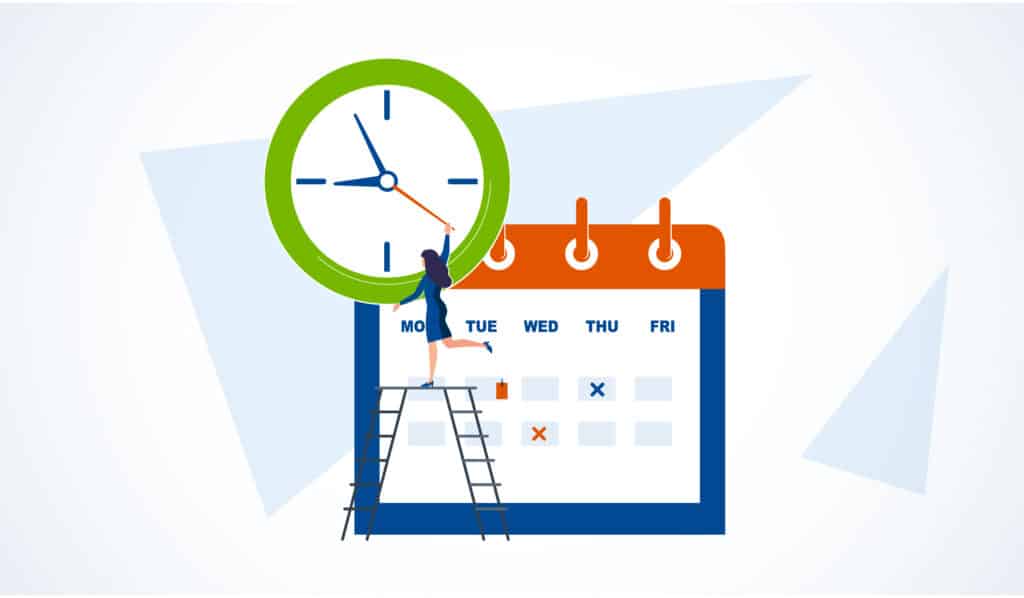
52.1% of hearing aid purchasers stated that a companion was a major influence on their decision to move forward with hearing aids, but why? The difference that having a companion, or third party, present makes on patient care is tremendous, but to see that difference, your entire practice needs to believe in the benefits of companions and how to utilize them.
Here’s what you need to know about patient companions so you can provide even better hearing healthcare:
Having a Companion Present is a Critical Component of Patient Care
Seeking care for hearing loss, and then deciding to treat hearing loss with hearing aids is a hard decision for people to make by themselves. It can also be a huge financial decision for someone to make alone. A companion offers the patient emotional support during this journey. Having a companion present also improves patient care by offering you another perspective on the patient’s journey and the current state of their hearing health, which helps to manage expectations. When most people say that their hearing aids don’t work, what that really means is that they haven’t met the expectations that they came in with. In some cases, especially with spouses, a patient might say that they’re hearing a lot better, but their spouse disagrees. If you dig a little deeper into the situation, you’ll find that the spouse has unrealistic expectations. For example, the patient cannot hear their spouse from the kitchen while the patient is in the garage with a closed door between them. This creates a conflict of expectations. By getting the spouse involved in the appointments, you can manage this so they end up realizing and appreciating other improvements, like better one-to-one conversations. Expectations are met when they’re set appropriately, which then creates long-term satisfaction.
By having a companion present at appointments, you also create a team approach to a patient’s care. When a patient goes home from an appointment and explains to their loved one what happened or what the provider said, they’re most likely not getting 100% of the information correct. When the loved one is present, they act as another set of eyes and ears to retain important details and instructions that a patient might miss.
The Closer the Companion, the Better
The person who makes the best companion for the patient is the person that they spend the most time communicating with. Generally, that’s probably going to be a spouse if they have one. If the patient does not have a spouse, then it’s probably going to be an adult child or a friend.
Typically, the person you want present during this process is the person they spend a lot of time communicating with because when they get to see what it’s like to be able to hear and communicate normally, it’s an eye-opening moment. You want somebody there who actually knows the patient.
Companion Commitment is a Team Effort
Gaining the commitment of a patient to bring a companion starts with the belief that this is a critical component to gold standard patient care. You, as a practice, have to believe that having a companion present is a key ingredient to your patient’s experience. Once you believe that, then you can start working on the behavior that it takes gain a patient’s commitment to bring their companion. When you’re booking an appointment, the behavior is as simple as asking the patient the appointment in an appropriate way and explaining why it is beneficial for them. While scheduling the appointment time, make sure it’s a time that works well for both the patient and their companion.
If the front office staff has made every effort to try to get a patient to bring a companion with them, this presents a great opportunity for the front office to communicate with the provider. The provider can then reach out to the patient to try to change their mind. Often, using a team approach and having the provider make that outbound call, sends a clear message to the everybody on the team that everybody is bought in. Everyone is willing to go outside of their comfort zone to pick up a telephone and call someone to ask or to explain again. You’re all going to make this a priority because you believe it is a key component to gold standard patient care.
Utilize the Companion Throughout the Entire Appointment
The biggest way a provider can utilize a companion is by letting them be part of the of the journey from start to finish. They’ve been a part of the patient’s life before you entered the picture and they will be after, so they’re key to the patient’s life and to their evaluation.
Appropriately working with the companion means not leaving them in the waiting room. Have them come back from the beginning of the appointment and stay with the patient all the way through to the end, because their perspective plays an incredibly important role in helping you understand what’s going on at home. Use the entirety of the appointment from start to finish as an evaluation. Evaluate how the patient and the companion talk to each other and see what questions the companion asks or if they’re answering for the patient. Measuring their communication for the entirety of the evaluation is helpful in an addition to the diagnostic testing. Then, if appropriate, you’ll do a demonstration of the hearing aid and what the technology can do. Engaging the companion in that demonstration is very helpful because it gives the patient and their companion a better sense for what things could be like in the real world.
Communicate with Care
Beyond setting realistic expectations, something to keep in mind when communicating with the companion is the emotional toll that they have taken throughout the patient’s hearing loss journey. This is something that often gets overlooked. While you might be seeing the patient for the first time, they may have been dealing with hearing loss for many years before seeking treatment. During those years, hearing loss has probably caused them both a lot of stress and anxiety, and may have even led to arguments, misunderstandings, and a loss of connection between the patient and their companion. It’s vital to remember that the companion might be in a very difficult place emotionally and allowing them to express that is a critical part to a successful patient care continuum. To let them be heard and understood is truly meaningful to both the companion and the patient.
Encourage Your Staff by Focusing on the Goal
When encouraging staff to start requesting for patients to bring a companion, everyone in your practice needs to believe that companions are a critical component of gold standard care.
You can also do research ahead of time to see where your companion rate has traditionally been, and then make it a focus during company meetings to explain that this will be a priority for the next quarter or year. Maybe your KPIs indicate that now is a good time to recenter on the habits that are going to make you successful, and that includes encouraging more companion appointments.
Don’t be surprised if it takes your team a little while to be ready to regularly request companions. Continue to lead by example, encourage them, continue to catch them doing it right and coaching them. When you push to get even 1% better every day, you’re going to look back one day and realize what you’ve been able to accomplish as a team because you believed in something and decided to make it happen.
Having patients bring companions to their appointments should be a priority when providing the gold standard of care in your practice. When your entire practice is aligned on the purpose of companions, how to get them to the office, and how to with communicate them, both you and your patients will see the incredible benefits this strategy can bring.
Helping you provide the highest level of patient care is a priority for CQ Partners. Your CQ Partners Account Manager is here to help you motivate your team to implement appointment companions, provide training, and make it a true priority for your practice.










